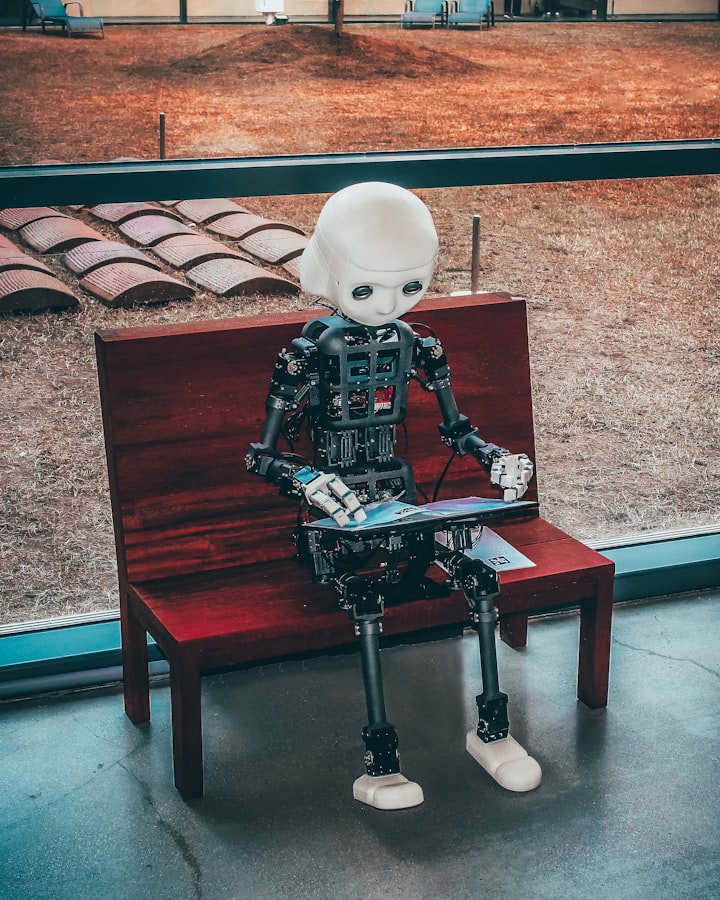The Benefits and Cautions of Artificial Intelligence
How AI Can Improve Our Lives and What We Must Consider to Avoid Its Negative Impacts

Artificial intelligence (AI) is a rapidly evolving field of technology that has the potential to revolutionize many aspects of our lives. AI has already been integrated into many areas of our society, such as healthcare, transportation, and entertainment, and has brought numerous benefits, including improved efficiency, accuracy, and safety. However, as AI becomes more ubiquitous, there are also concerns about its potential negative impacts, such as job displacement, bias, and privacy violations. In this essay, we will explore the benefits and cautions of artificial intelligence and what we must consider to ensure that AI continues to improve our lives in a responsible and ethical manner.
One of the main benefits of AI is its ability to perform tasks that would otherwise be difficult, time-consuming, or even impossible for humans to do. For example, AI algorithms can quickly analyze large datasets to detect patterns and insights that would be difficult for humans to discern. In healthcare, AI has been used to analyze medical images, such as X-rays and CT scans, to identify early signs of diseases and provide faster and more accurate diagnoses. In transportation, AI has been used to develop self-driving cars that can reduce the number of accidents caused by human error. In entertainment, AI has been used to create more immersive and personalized experiences, such as personalized music recommendations and virtual reality experiences.
Another benefit of AI is its potential to improve efficiency and reduce costs. AI-powered systems can automate many tasks that would require human labor, such as customer service, data entry, and even some types of creative work. This can free up human workers to focus on tasks that require human skills, such as creativity, empathy, and critical thinking. In manufacturing, AI-powered robots can work faster and more accurately than human workers, reducing production costs and improving product quality. In finance, AI-powered algorithms can analyze financial data and make investment decisions faster and more accurately than human traders.
However, as AI becomes more advanced and more widespread, there are also concerns about its potential negative impacts. One of the main concerns is job displacement. As AI becomes more capable of performing tasks that were previously done by humans, there is a risk that many jobs will become obsolete, leading to mass unemployment and social disruption. Another concern is bias. AI algorithms are only as unbiased as the data they are trained on, and if the data is biased, the algorithms can perpetuate that bias. This can lead to unfair treatment of certain groups of people, such as minorities and women. Finally, there are concerns about privacy violations. AI algorithms can collect and analyze vast amounts of personal data, and if this data falls into the wrong hands, it can be used for nefarious purposes, such as identity theft and surveillance.
To ensure that AI continues to improve our lives in a responsible and ethical manner, there are several key considerations that we must take into account. First, we must ensure that AI is developed and used in a way that respects human rights, such as privacy, freedom of expression, and non-discrimination. This requires a clear legal and ethical framework that balances the benefits of AI with the potential risks. Second, we must ensure that AI is transparent and accountable. AI algorithms must be transparent about how they make decisions, and there must be mechanisms in place to hold AI systems accountable for their actions. Third, we must ensure that AI is inclusive and does not perpetuate bias. This requires diverse teams of developers and stakeholders who can identify and mitigate bias in AI algorithms. Finally, we must ensure that AI is developed in a way that benefits all of society, not just the wealthy or powerful. This requires collaboration between governments, civil society organizations, and the private sector to ensure that.
About the Creator
Sebastião Kiala
Passionate about technology and innovation. Father of two beautiful children and in my free time, I enjoy reading. My desire to innovate and improve the world through technology is the foundation of my personal and professional life.






Comments
There are no comments for this story
Be the first to respond and start the conversation.